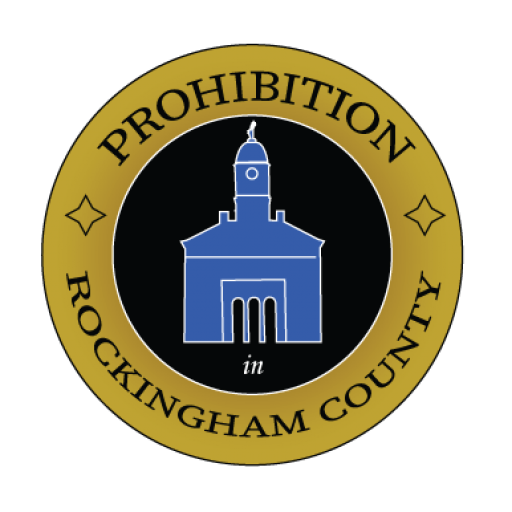Long bar of a Saloon in the Kavanaugh Hotel in Harrisonburg. Image copyright of Harrisonburg-Rockingham Historical Society
The United States has a long history with alcohol. Since the Early Republic, Americans developed an appetite for alcohol. In a world where drinking water was potentially harmful, alcohol played an essential role in people’s lives–beyond the purely recreational place that it holds today. Indeed, alcohol was prized as much for its medicinal properties as for its role as a social lubricant. And many rural Americans relied on distilled spirits as a tradable commodity in a cash poor economy. In a mostly rural nation distilling alcohol turned farm surplus into trade units. Organized efforts to curtail the consumption of alcohol began in the 1820s when Protestant revivals focused on alcohol as a destructive influence in families and society. A larger Prohibition effort emerged in the late nineteenth century as part of a wave of reform movements in the 1890s.
The political success of temperance in Virginia was primarily due to the efforts of two Powerful political pressure groups, the Anti-Saloon League (ASL) and the Women’s Christian Temperance Union (WCTU). In general, Virginians living in rural counties and small towns supported Prohibition while opposition coalesced around the business communities of larger cities who feared it would stifle business. Urban immigrant workers, African Americans and poor whites also largely opposed prohibition, but their influence was muted after the 1902 Virginia Constitution when many from these groups lost the right to vote.
The WCTU and evangelical preachers gained support for Prohibition and led the General Assembly to pass a “local option” law in 1886, allowing local governments to hold elections on prohibition. After 1900, the ASL in Virginia successfully lobbied for stricter legislation that further regulating the sale of alcohol. Methodist minister James Cannon Jr. helped lead Virginia to pass the Mann Law in 1903, which severely limited the sale of alcohol in areas without an active police force and required judges to approve any exceptions by issuing liquor licenses. the Mann Law also imposed heavy taxes on rural saloons, which served to drastically reduce the number of saloons in Virginia. By 1909 much of rural Virginia had outlawed the sale of alcohol.
After 1910 the ASL of Virginia increasingly viewed statewide prohibition as the next step. The ASL and the WCTU helped to push through an “enabling bill” in the General Assembly, which set up prohibition for a statewide vote on September 22, 1914. With overwhelming support from rural counties—at least from those still eligible and motivated to vote—the measure passed, and statewide prohibition went into effect on November 1, 1916. The political contest in Rockingham between those who supported (known as dry) and those who opposed (wet) prohibition culminated in a dry victory in 1914. Rockingham voted in favor of state prohibition, 3230 in favor and 1039 against (The total 1910 population of the county was 34,903). Evangelical sentiments in rural counties propelled Virginia towards adopting statewide prohibition in 1916 and setting the stage for the later passage of the Eighteenth Amendment on 16 January 1919. Prohibition advocates were not satisfied with a symbolic victory and quickly drafted legislation that would ensure the strict enforcement of national prohibition. The Volstead Act was enacted in 1919 and went into effect in 1920 to provide legislation for the enforcement of the Eighteenth Amendment, which prohibited the manufacture and sale of alcoholic beverages nationally.
A defining feature of Prohibition in Rockingham is that the local government and law officials supported the federal and state prohibition laws. Those who opposed the ban on alcohol—primarily poor mountain whites—faced opposition at the local, state and federal level in Rockingham County. Many, including rural farmers took advantage of the underground market created by prohibition laws. The lure of economic opportunity made bootlegging and moonshining a practical strategy for many in what, for them, remained a cash poor economy. This ensured that the contest over alcohol did not end but moved into the new arena of enforcement.
Learn more about Prohibition in Rockingham County!
The Stories of Prohibition
Visit the stories section to see five examples, drawn from the criminal case records, of the stories these historical resources can reveal.
How to Navigate the Records
Visit the records page to get a deeper understanding of the types of records housed in the Exploring Rockingham’s Past (ERP) digital archive.
Dive into the Digital Archive
Dig deeper into the records for your own interactive archival experience! The “Prohibition” collection joins the previously digitized Shenandoah National Park Removal records that provides easier public and research access to the wealth of historical resources stored within the County Courthouse.
